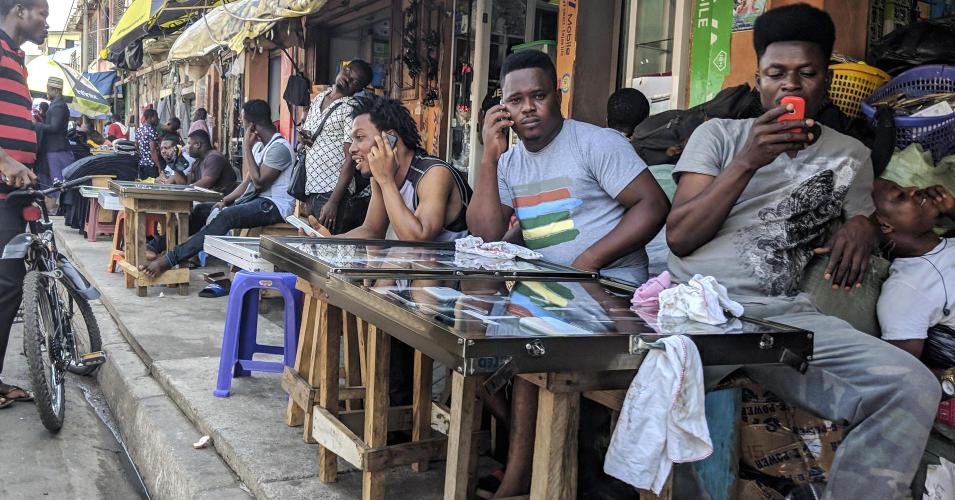
Africa continues to work towards addressing the internet access and use divide. However, we now need to find a seat at the table of emerging data-driven solutions. These technologies offer the potential to make life easier and improve decision-making. Specifically, Artificial Intelligence (AI) seems to hold the promise of positively impacting education, enhancing financial services, bettering government service delivery and improving agricultural practices in the Global South. However, as we seemingly embrace “new tech”, it is also imperative to ask: who is shaping the discourse, how are our policy makers responding to these developments and do these new technologies bear the risk of replicating existing patterns of discrimination, particularly for women? After all, innovation does exist within a context of social and cultural norms that do not necessarily promote equity.
At the Africa Internet Governance Forum (AfIGF) in Khartoum, Sudan, emerging technologies, including AI, were discussed in all their hype. The possibilities that these innovations hold for Africa were highlighted, and recommendations were put forward on how different stakeholders may ensure that Africa is ready for the “machines to take over”. Some of these included:
- Policy adaptation on AI and blockchain within each country
- Creation of a strong legal framework
- Awareness and training for African people
- Local community involvement
- Careful review and cautious implementation of AI to mitigate potential job losses when discussing smart contracts
- Consideration of gender aspects in smart contracts
There is a need to truly unpack the impact of AI, especially for a continent that struggles with high levels of inequality, poverty and unemployment. The need to address this is revealed by looking at who is leading the conversation; at the AfIGF, for example, it was an all-male panel. Equality, inclusivity and beneficial use of AI is only possible when those who contribute to the discussion reflect the diversity in which we exist. For women specifically, the gender bias can clearly be seen in the development of AI, from non-inclusive design of machine learning to the focus on automating low-end work which is predominantly performed by women.
With each new innovation, it is crucial to question the inclusivity of the technology. Are these AI-based solutions adequately diverse and representative in terms of who is introducing and deploying them, who creates policies for their use, and who is most likely to be impacted by them? Mapping who is designing the technology and demanding transparency about what is taken into account is needed to properly understand the development of AI in Africa. Radiet Abebe, co-founder of Black in AI, highlights that with all the focus on latent bias in machine learning and algorithmic data, we also miss opportunities to use AI for the good of many. Therefore, we need to research how we can make AI more inclusive and avoid the negative effects of this possible technological bias.
In general, we need more robust research to better shape the discussion of where Africa stands with regard to emerging technologies. We require baseline studies on the prevalence of AI on the continent and the creation of corresponding policies to regulate this field. Few African governments are engaged in the promotion of AI research and use, which means that we still need to develop the involvement and expertise of policy makers for emerging technologies. To ensure that we capture the gains of AI, we must first understand what is happening to better inform policies. Research needs to understand the level of involvement in designing technology and transparency on what is taken into account, including ethical consideration and the social impact on different groups. Research ICT Africa will be embarking on an AI policy series as part of its Regional Academic Network on IT Policy (RANITP) and Africa Digital Policy research programme. It will develop thematic case studies on the following issues:
- a) AI & Gender
- b) AI, consolidation & intellectual property
- c) AI & Datafication
- d) AI & Cybersecurity
In sum, if the hope is to use AI to help Africa effectively address various issues, we need to be critical of innovation and understand how it is being applied to the diverse contexts in which women exist, so it does not simply become another “pink phone” solution. I look forward to seeing critical engagement from different stakeholders, evidence-based policy decisions and use of AI for good in the near future as Africa leverages these technologies to face its challenges head-on.

Chenai Chair’s interest in the ICT sector developed from learning of mobiles for development while writing her Master’s thesis titled, “Mobile Phones for Development: How Have Women in the Informal Sector used their Mobile Phones to Enhance Themselves and their Business?” in 2014. Chenai focuses on issues of ICT access and use and related policy development, and has worked on projects in South Africa, Zambia, Rwanda, Ghana and Kenya. Her areas of research include youth access and use, gendered issues of access and internet governance. She recently completed a policy paper on youth, internet and deprivation in Africa.
